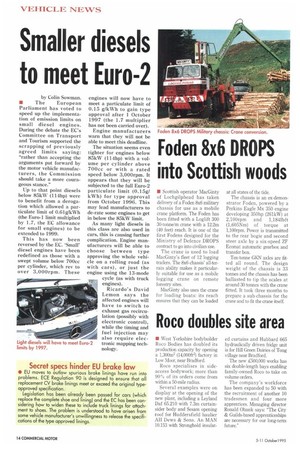Smaller diesels to meet Euro-2
Page 16

If you've noticed an error in this article please click here to report it so we can fix it.
by Colin Sowman.
• The European Parliament has voted to speed up the implementation of emission limits on small diesel engines. During the debate the EC's Committee on Transport and Tourism supported the scrapping of previously agreed limits saying: "rather than accepting the arguments put forward by the motor vehicle manufacturers, the Commission should take a more courageous stance."
Up to that point diesels below 85kW (114hp) were to benefit from a derogation which allowed a particulate limit of 0.61g/kWh (the Euro-1 limit multiplied by 1.7, the EC allowance for small engines) to be extended to 1999.
This has now been reversed by the EC. 'Small' diesel engines have been redefined as those with a swept volume below 700cc per cylinder, which rev to over 3,000rpm. These engines will now have to meet a particulate limit of 0.15 g/kWh to gain type approval after 1 October 1997 (the 1.7 multiplier has not been carried over).
Engine manufacturers warn that they will not be able to meet this deadline.
The situation seems even tighter for engines below 85kW (114hp) with a volume per cylinder above 700cc or with a rated speed below 3,000rpm. It appears that they will be subjected to the full Euro-2 particulate limit (0.15g/ kWh) for type approval from October 1996. This may lead manufacturers to de-rate some engines to get in below the 85kW limit.
As many light diesels in this class are also used in cars, this is causing further complication. Engine manufacturers will be able to choose between type approving the whole vehicle on a rolling road (as with cars), or just the engine using the 13-mode cycle (as with truck engines).
Ricardo's David Lemon says the affected engines will have to switch to exhaust gas recirculation (possibly with electronic control), while the timing and fuel injection may also require electronic mapping technology.




































































































































